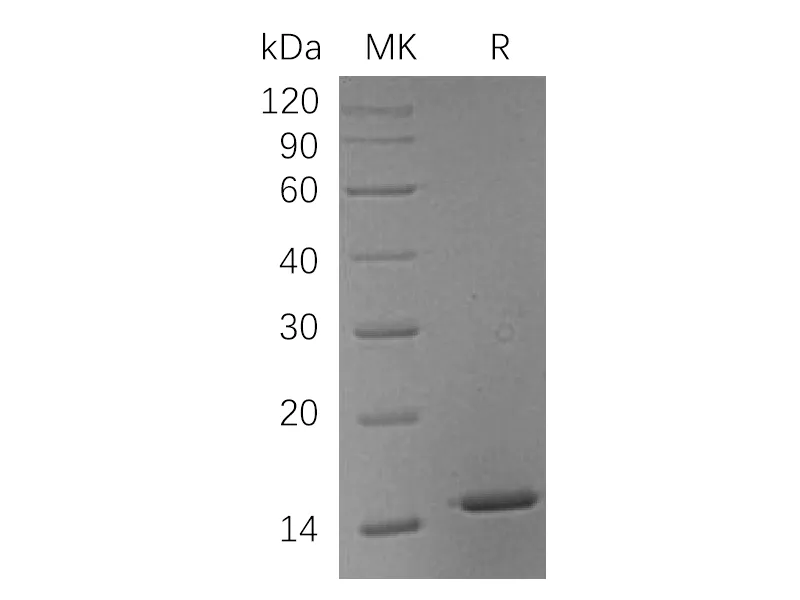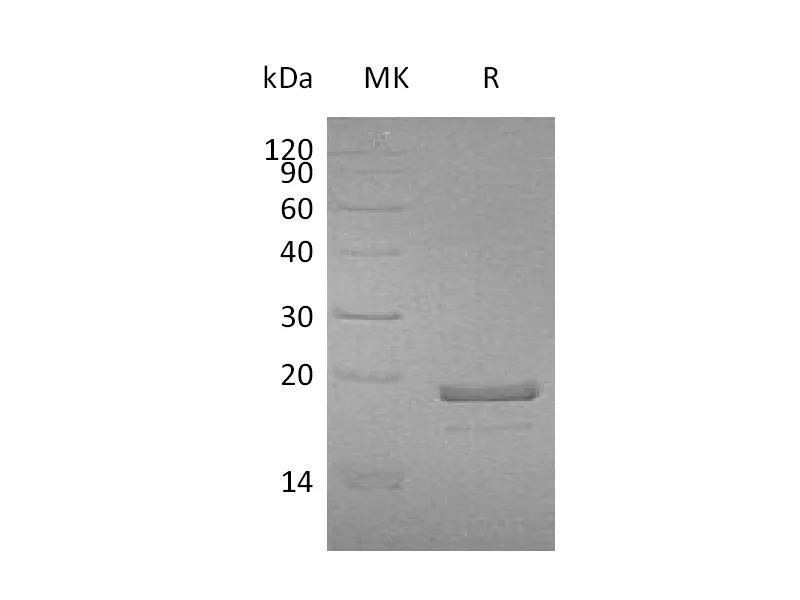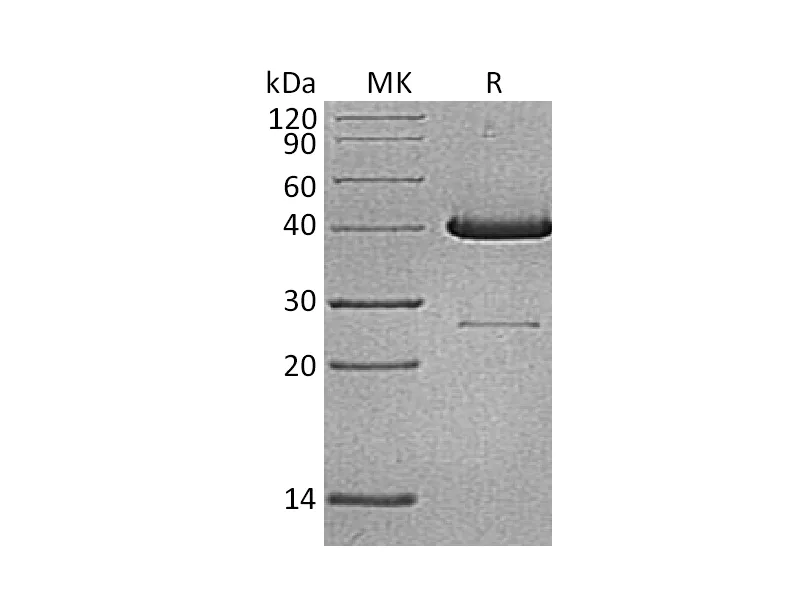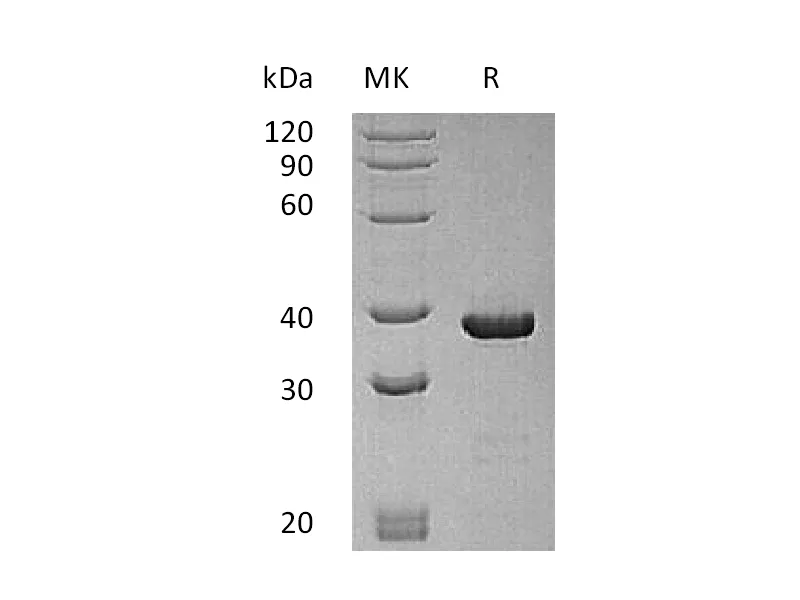| 产品名称 |
Recombinant Human S100A11 |
| 英文名称 |
S100A11 |
| 纯度 |
Greater than 95% as determined by reducing SDS-PAGE |
| 内毒素 |
<1 EU/µg as determined by LAL test. |
| 蛋白构建 |
Recombinant Human Protein S100-A11 is produced by our E.coli expression system and the target gene encoding Met1-Thr105 is expressed. |
| Accession |
P31949 |
| 表达宿主 |
E.coli |
| 种属 |
Human |
| 预测分子量 |
11.7 KDa |
| 制剂 |
Lyophilized from a 0.2 μm filtered solution of PBS, 1mM DTT, pH 7.4. |
| 运输方式 |
The product is shipped at ambient temperature.Upon receipt, store it immediately at the temperature listed below. |
| 稳定性&储存 |
Store at ≤-70°C, stable for 6 months after receipt.Store at ≤-70°C, stable for 3 months under sterile conditions after opening. Please minimize freeze-thaw cycles. |
| 复溶 |
Always centrifuge tubes before opening.Do not mix by vortex or pipetting.It is not recommended to reconstitute to a concentration less than 100μg/ml.Dissolve the lyophilized protein in distilled water.Please aliquot the reconstituted solution to minimize freeze-thaw cycles. |
| 分子别名 |
| Protein S100-A11; Calgizzarin; Metastatic lymph node gene 70 protein; MLN 70; S100A11; Protein S100-C; S100 calcium-binding protein A11; MLN70; S100C |
| 背景介绍 |
| S100A11 is a member of the S100 family of calcium binding proteins. Human S100A11 contains two EF hand motifs and shares 82% amino acid sequence identity with mouse and rat S100A11. It forms covalent homodimers upon transglutamination and also disulfide-linked tetramers. S100A11 is secreted by keratinocytes and can be crosslinked into the cornified envelope of the skin. Dimerization enhances its ability to signal through RAGE on keratinocytes, induce the production of EGF family proteins, and induce cell proliferation. Dimerization also enables S100A11 to bind RAGE on chondrocytes, leading to chondrocyte hypertrophy and catabolism of the cartilage matrix. S100A11 is additionally found in the cytosol where it becomes phosphorylated and translocates to the nucleus in response to DNA damage, RELM alpha exposure, or elevated extracellular calcium concentrations. Calcium also promotes S100A11 association with S100B as well as Annexins A1, A2, and A6. S100A11-Annexin A2 complexes are recruited to sites of plasma membrane damage where they facilitate membrane repair in migrating cancer cells. S100A11 is upregulated in various cancers and supports tumor cell proliferation, invasion, and migration. In addition, S100A11 is produced in the ovary, and it acts on cumulus cells to inhibit oocyte fertilization. |
注意事项
本司产品仅用于科研,不用于临床诊断和治疗




